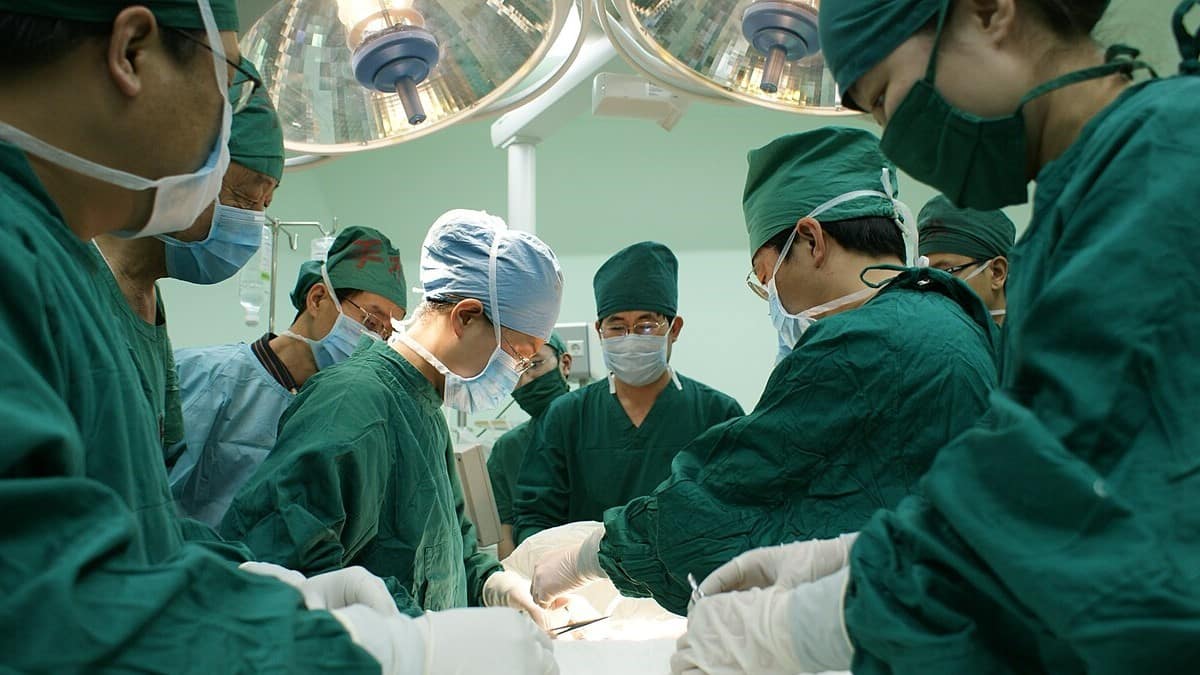NEET Counselling 2025: HC overrules boards’ ineligibility call, allows disabled MBBS aspirant under PwD quota
Musab Qazi | October 9, 2025 | 07:04 PM IST | 4 mins read
NEET 2025 Counselling: Visually-impaired MBBS aspirant challenges JJ Hospital, AIIMS Nagpur boards’ assessments; Bombay HC says revisiting her disability status not necessary
NEET 2026 Free Mock Test with Solutions
Download the NEET 2026 Free Mock Test PDF with detailed solutions. Practice real exam-style questions, analyze your performance, and enhance your preparation.
Download EBook
NEET UG 2025: The Bombay High Court (HC) on Wednesday allowed a visually impaired medical aspirant to participate in the ongoing NEET UG counselling 2025 under the person with benchmark disability (PwBD) quota. Two medical boards in Maharashtra had earlier deemed her ineligible for the reservation.
Uzma Khan, a city resident holding a certificate of 40% benchmark disability, the threshold for PwBD quota, had challenged the assessments by the disability assessment boards at Mumbai’s JJ Hospital and the All India Institute of Medical Sciences (AIIMS), Nagpur. While the former had concluded that she neither belonged to the low-vision category nor possessed the functional capabilities to pursue the course, a retest by the latter found her capable for medical education but not eligible for quota benefits.
The petitioner had argued that the two medical boards only needed to examine if the candidate was able to perform the necessary skills and that it was outside their remit to verify her disability status. She was already adjudged to be a low vision person by the medical board at Mumbai’s Cooper Hospital and held a Unique Disability ID (UDID) card, pointed out the plea.
In its order, the HC said that it doesn’t find it necessary to revisit the conclusion made in granting 40% UDID to the candidate.
The relief came just in time for the candidate to sign up for the third round of NEET UG counselling. The registration process closed at noon on Thursday, though the candidates can lock their preference till midnight.
NEET Counselling 2025: NMC, Supreme Court order
The petition comes against the backdrop of a landmark decision delivered by the Supreme Court (SC) earlier this year, asking NMC to overhaul its disability norms. The apex court, while calling the medical education regulator’s previous guidelines ‘unconstitutional’ and ‘discriminatory’, sought a shift from the rigid criteria to a more subjective assessment of an individual’s capabilities.
Following the court’s directive, the NMC, in July, issued “interim” guidelines for determining the candidates’ disability and eligibility for the ongoing NEET counselling 2025 process. Among other things, the document requires the candidates to submit their UDID and self-certified affidavit, to be verified by the designated medical boards.
In its initial examination in July, JJ Hospital’s medical board had remarked that Khan doesn’t belong to the low vision category, as she, in her affidavit, had declared not using any low vision aids to improve her sight. It concluded that the candidate didn’t demonstrate functional capabilities.
In her plea, Khan questioned this assessment, claiming that the board arrived at this conclusion solely on the basis of her self-declaration about not using low vision aids, and without carrying out any functional assessment or providing any justification. The petitioner further argued that the board extended its brief by determining student’s eligibility for the 5% PwD quota.
MBBS Admission: NMC guidelines for PwBD candidates
NMC’s interim guidelines stipulate that those with visual disability of more than 40% may be made eligible to pursue MBBS and may be given reservation, subject to the condition that the visual disability is brought to a level of less than the benchmark of 40% with advanced low vision aids. The self-declaration pro-forma prescribed in these guidelines require the candidates to affirm that they use low vision aids and can perform using them.
The petitioner had even criticised the low vision aid requirement in the interim guidelines as “medically and legally flawed”. “Benchmark disability is determined after best possible correction and does not contemplate further “reduction” of impairment. Such a condition effectively excludes all persons with blindness and low vision from the benefit of reservation,” reads the petition.
Following the plea, the Bombay HC, on September 26, allowed the candidate to undergo a reevaluation at AIIMS Nagpur, another designated disability certification centre. The institute’s medical board found Khan to be sufficiently skilled for pursuing medical education. However, the board also concluded that since her visual disability was less than the benchmark, she couldn’t claim PwD reservation.
The petitioner again challenged this finding on the ground that the role of the disability assessment board is only to assess functional competence and not to quantify the disability.
However, PP Kakade, the additional government pleader, who appeared for JJ Hospital, argued that the two hospitals hadn’t focused on the percentage of the student’s disability. It was pointed out that while examining her functional abilities, they noticed that her disability is below 40%.
Accepting Kakade’s contention, the court said that the hospitals’ conclusion about the candidate’s disability being below the threshold was a “co-incidental” factor emerging from medical examination.
As demanded by HC, the petitioner submitted the original documents underpinning her disability certificate and UDID. The court also interacted with one of the doctors who had issued those documents. She affirmed that the candidate was indeed assessed to be more than 40% visually impaired, resulting in the court allowing the candidate to particpate under PwD category.
Follow us for the latest education news on colleges and universities, admission, courses, exams, research, education policies, study abroad and more..
To get in touch, write to us at news@careers360.com.